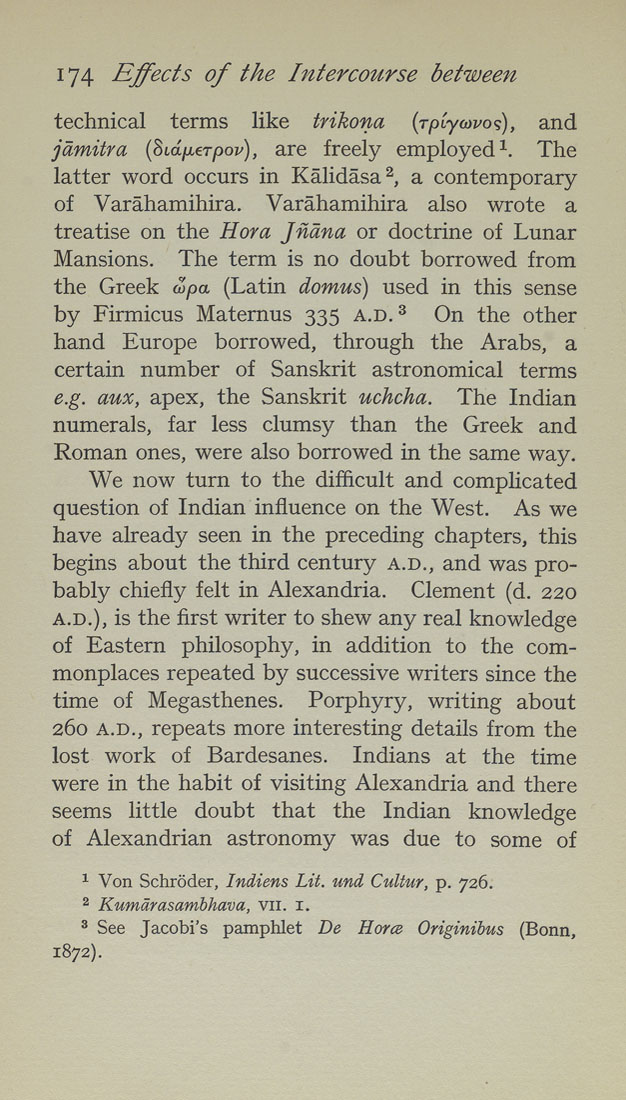174 Effects of the Intercourse between
technical terms like trikona {jpiyoivoi), and
jdmitra (StdixeTpov), are freely employed^. The
latter word occurs in Kalidasa^, a contemporary
of Varahamihira. Varahamihira also wrote a
treatise on the Hora Jndna or doctrine of Lunar
Mansions. The term is no doubt borrowed from
the Greek wpa (Latin domus) used in this sense
by Firmicus Maternus 335 a.d. ^ On the other
hand Europe borrowed, through the Arabs, a
certain number of Sanskrit astronomical terms
e.g. aux, apex, the Sanskrit uchcha. The Indian
numerals, far less clumsy than the Greek and
Roman ones, were also borrowed in the same way.
We now turn to the difficult and complicated
question of Indian influence on the West. As we
have already seen in the preceding chapters, this
begins about the third century a.d., and was pro¬
bably chiefly felt in Alexandria. Clement (d. 220
A.D.), is the first writer to shew any real knowledge
of Eastern philosophy, in addition to the com¬
monplaces repeated by successive writers since the
time of Megasthenes. Porphyry, writing about
260 A.D., repeats more interesting details from the
lost work of Bardesanes. Indians at the time
were in the habit of visiting Alexandria and there
seems little doubt that the Indian knowledge
of Alexandrian astronomy was due to some of
^ Von Schroder, Indiens Lit. und Cultur, p. 726.
2 Kumdrasambhava, vii. i.
^ See Jacobi's pamphlet De Horce Originibus (Bonn,
1872).
|








